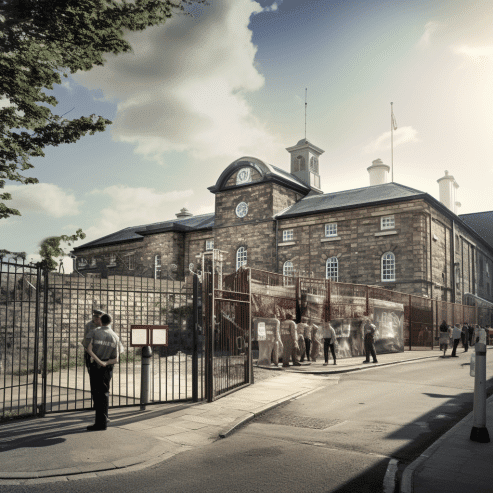Prison sentences in the UK
Prison Sentences in the UK: Understanding the Length and Types
In the United Kingdom, courts have various prison sentences available to them when sentencing offenders. The type of sentence chosen depends on the nature of the crime and its seriousness. Understanding how these sentences work is essential to grasp the length of time a prisoner may spend in custody.
Determinate Sentences: Determinate sentences are fixed-length prison terms. For offenses committed on or after February 1, 2015, prisoners aged 18 or above, sentenced to at least 2 days but less than 2 years, are typically released on license halfway through their sentence. They remain on license until the end of their sentence, followed by post-sentence supervision for 12 months to ensure they receive supervision for the entire period of imprisonment.
UK Prison sentences
Examples of sentence lengths and release arrangements under determinate sentences:
For offenses committed before February 1, 2015:
- 6 months sentence: 3 months in prison, followed by 3 months of community sentence without supervision.
- 12 months sentence: 6 months in prison, followed by 6 months of community sentence without supervision.
- 18 months sentence: 9 months in prison with 9 months on license.
For offenses committed after February 1, 2015:
- 6 months sentence: 3 months in prison, followed by 3 months on license with 9 months of post-sentence supervision (total supervision of 12 months).
- 12 months sentence: 6 months in prison, followed by 6 months on license with 6 months of post-sentence supervision (total supervision of 12 months).
- 18 months sentence: 9 months in prison, followed by 9 months on license with 3 months of post-sentence supervision (total supervision of 12 months).

Prison UK Sentences
Sentences Over 2 Years: Prisoners sentenced to two years or more serve half their sentence in prison and the rest in the community on license. Those with sentences between three months and four years may be eligible for a Home Detention Curfew (HDC), allowing release up to 135 days before the automatic release date with electronic tagging and a curfew.
Extended Sentences: Introduced to replace Indeterminate Sentences for Public Protection (IPP), extended sentences are given to prisoners aged 18 or above deemed significant risks to the public. These sentences are assigned when:
- The prisoner is guilty of specified violent or sexual offenses.
- The court considers the prisoner a significant risk to the public for further offenses.
- Life imprisonment is not available or justified, and the prisoner has previous convictions for specific offenses or the current offense warrants a custodial term of at least four years. The judge decides the prison term and sets the extended license period (up to a maximum of eight years). The prisoner may be entitled to automatic release at two-thirds of the custodial sentence or apply for parole.

Life Sentences: When a court passes a life sentence, it means the convicted person will be subject to the sentence for life. A minimum term (tariff) is set, and the person becomes eligible for parole after serving that term. A life sentence always lasts for life, regardless of the length of the minimum term.
Whole Life Order: For the most severe cases, a person may receive a life sentence with a ‘whole life order,’ meaning they will never be released from prison.
In conclusion, the UK’s prison sentences come in various forms, each designed to suit the gravity of the offense and ensure public safety. Determinate sentences have fixed lengths, while extended sentences and life sentences cater to significant risks to the public. Understanding the different types of prison sentences helps maintain the balance between rehabilitation and protecting society.



